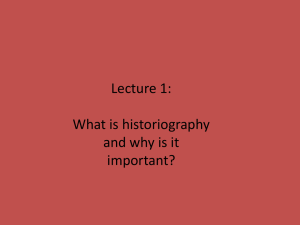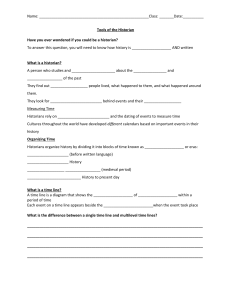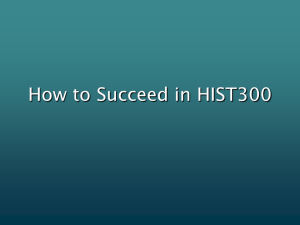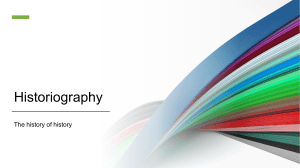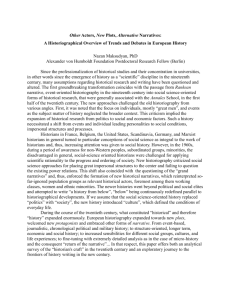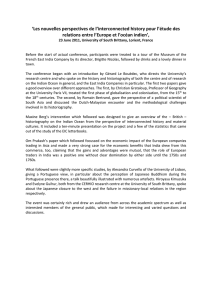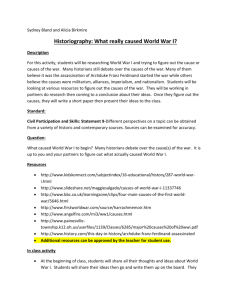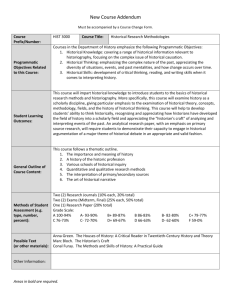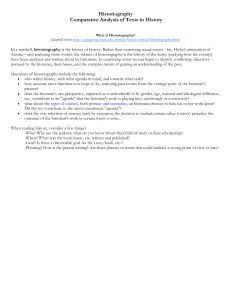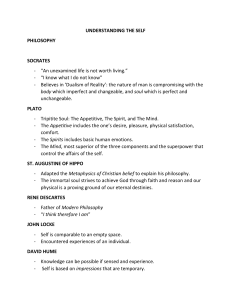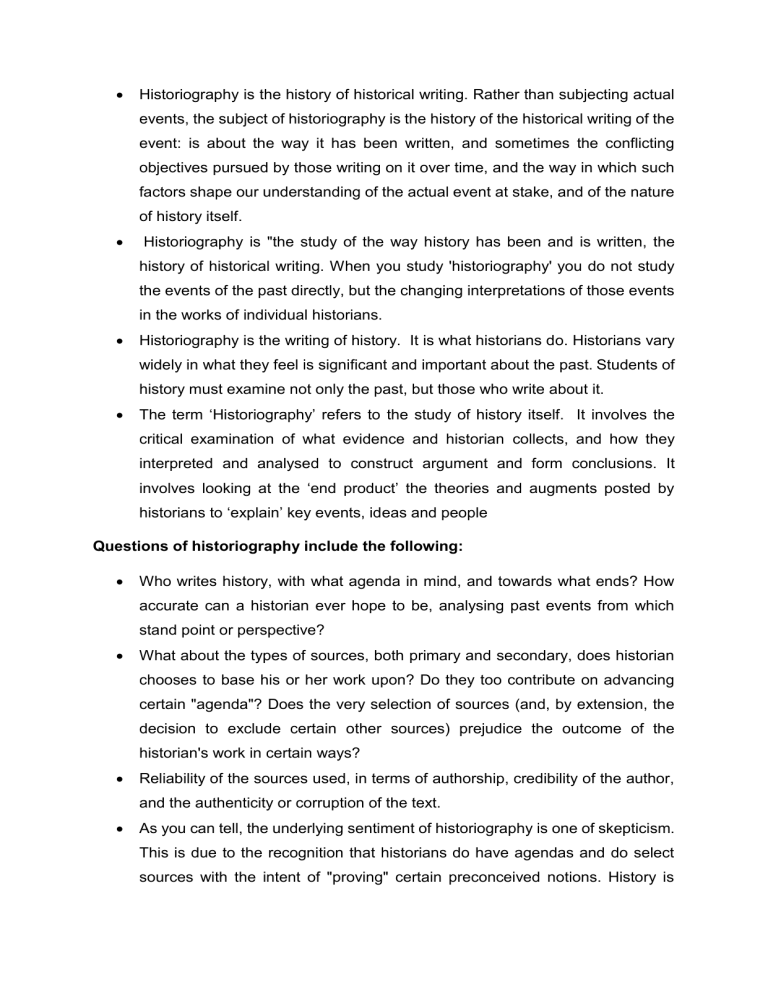
Historiography is the history of historical writing. Rather than subjecting actual events, the subject of historiography is the history of the historical writing of the event: is about the way it has been written, and sometimes the conflicting objectives pursued by those writing on it over time, and the way in which such factors shape our understanding of the actual event at stake, and of the nature of history itself. Historiography is "the study of the way history has been and is written, the history of historical writing. When you study 'historiography' you do not study the events of the past directly, but the changing interpretations of those events in the works of individual historians. Historiography is the writing of history. It is what historians do. Historians vary widely in what they feel is significant and important about the past. Students of history must examine not only the past, but those who write about it. The term ‘Historiography’ refers to the study of history itself. It involves the critical examination of what evidence and historian collects, and how they interpreted and analysed to construct argument and form conclusions. It involves looking at the ‘end product’ the theories and augments posted by historians to ‘explain’ key events, ideas and people Questions of historiography include the following: Who writes history, with what agenda in mind, and towards what ends? How accurate can a historian ever hope to be, analysing past events from which stand point or perspective? What about the types of sources, both primary and secondary, does historian chooses to base his or her work upon? Do they too contribute on advancing certain "agenda"? Does the very selection of sources (and, by extension, the decision to exclude certain other sources) prejudice the outcome of the historian's work in certain ways? Reliability of the sources used, in terms of authorship, credibility of the author, and the authenticity or corruption of the text. As you can tell, the underlying sentiment of historiography is one of skepticism. This is due to the recognition that historians do have agendas and do select sources with the intent of "proving" certain preconceived notions. History is therefore never truly "objective," but always a construct that presents the historian's view of things. History presents basic "facts" (dates, events, role players etc.); the task of the historian, then, is to interpret those facts, the outcome of which (a book, a journal article, a lecture, even a student paper) can never be truly objective, as interpretation is a subjective mental process. The victors write the history or those who are in position of power. Does this render the entire pursuit of history pointless? Any historical text you read must push you to delve more deeply into the matter, to explore both the event itself and the writer. Check whose work you are reading in greater detail, and consult additional sources. The outcome may complicate your view of things but, undoubtedly, it will give you a greater appreciation for the many factors that contribute to the interpretation of an historical event. Including factors of bias and prejudice, even your own. This appreciation, in turn, will make you a more thoughtful reader and writer of history.
